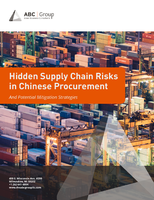Rotational Molding System is fully automated.
Share:
Press Release Summary:
Able to mold materials such as polyethylene, PVC, polypropylene, and other thermoplastics, Leonardo applies heating and cooling directly to mold in temperature-controlled, closed-loop system. Single operator can control 4-8 machines, as each machine performs automated material loading and part loading/unloading. PLC allows for mold interchangeability and change-over cycle programming. Unit is suited for complex, multi-action molds and simple, repetitive production.
Original Press Release:
Persico to Introduce Leonardo Their Fully-Automated Rotational Molding System
Nembro, Italy (September, 2005) - Persico S.p.A. announced the introduction of their new fully automated rotational molding system, Leonardo. This new machine, named Leonardo after the great DaVinci, has the potential to revolutionalize the rotational molding industry. Until now Persico has developed and prototyped machines within a close proximity to their facility in Nembro, Italy, near Milan. With successful installations manufacturing a variety of products, including fenders for the shipbuilding industry, a variety of vases, fire extinguisher cabinets and waste recepticles with lids, Persico is now positioned to offer Leonardo worldwide.
Before Leonardo, the standard rotational molding machine required extensive operator labor to manually load and unload molds. With the traditional method, molds are rotated in large ovens heated to a temperature of 177° C (350° F). After heating, the molds are sprayed with water to cool the molds to a temperature where the part can be demolded. The combination of extreme temperatures and direct water cooling creates such a harsh environment that standard methods of automation such as hydraulics or, pneumatics are simply not feasible. In addition, since the ambient temperature effects both the heating and cooling conditions rotational molding was only suited for materials with a large processing window, such as polyethylene and PVC.
With the Leonardo machine, Persico developed a system to apply heating and cooling directly to the mold in a temperature controlled closed-loop system. This simple step eliminates the large oven reducing energy consumption to a fraction of the previous levels. With controlled process temperatures, Leonardo provides the ability to mold materials with a tighter processing window such as polypropylene and other thermoplastics. Drawing on the their extensive automation experience in their Automotive Division, Persico was able to fully automate the machine with automated material loading, part loading/unloading, reducing operator labor to simple an attendant at the start up stage. A single operator can control 4 to 8 machines similar to injection molding or extrusion.
Although the primary advantages of Leonardo include a dramatic reduction in labor costs, energy consumption and the ability to mold engineered materials, Leonardo also delivers many secondary benefits. Due to the high temperatures of the traditional ovens, aluminum molds mounted on steel frames were the only type of tooling found to withstand oven temperatures over an extended period. The steel oxidizes and part contamination is a constant challenge to processors. The continuous expansion and contraction of the aluminum and steel from heating/cooling at elevated temperatures leads to rubbing, warping and parting line problems with the tooling. By changing the heating/cooling methods, all of these problems are eliminated. Leonardo provides a quite, clean environment that delivers consistent, reliable, quality products.
Leonardo also allows for mold interchangeability and efficient, change-over cycle programming through an operator-friendly PLC. The machine works as a single station where all heating, cooling, loading, unloading operations occur in the same place. The required floor space for the machine is significantly reduced compared to a carousel rotational machine (1/4 of the space taken up by the traditional machine).
From the loading of inserts to extracting the molded part, the Leonardo fully-automated rotational molding machine can handle any task. From complex, multi-action molds to simple repetitive production, Leonardo offers a effective solution to the increasing cost of labor and energy. Leonardo is transforming the rotational molding process.
Background:
Established in 1976, Persico SpA has three synergic divisions working towards advanced solutions. Persico SpA, set up in 1976 as a craft-based model workshop, has for many years been a company projected towards both national and international markets in three separate sectors: the Automotive Division, which makes moulds for forming thermosetting and thermoplastic materials as well as complete production lines; the Rotational Division, which supplies equipment for rotational moulding; the Nautical Division, which flanks shipyards from the initial design development phase, as far as the construction of the final production moulds




